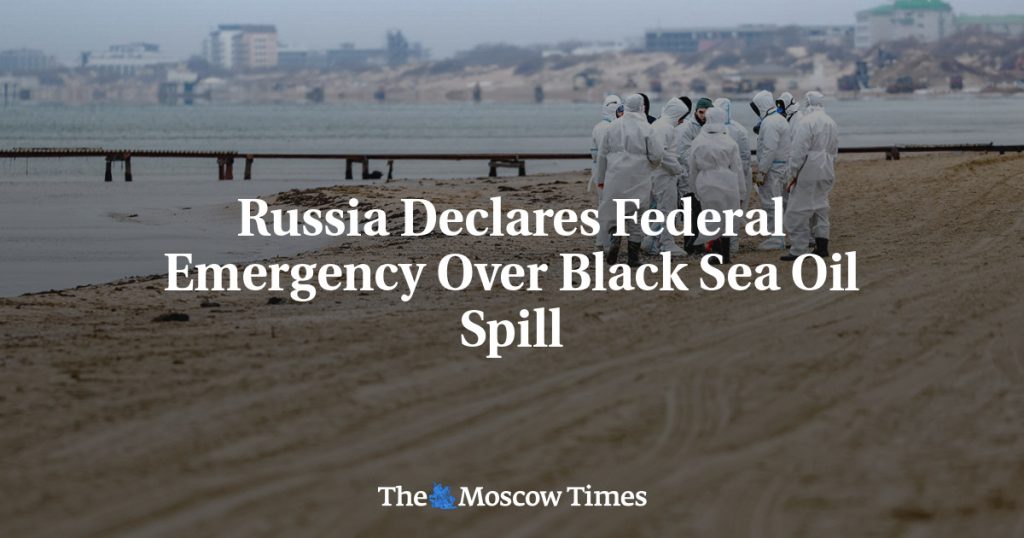Authorities in Russia have declared a federal-level emergency in response to an oil spill along the Black Sea coast that occurred on Dec. 15. The spill was caused when two Russian-flagged oil tankers were damaged during a storm, releasing thousands of tons of heavy fuel oil, known as mazut, into the sea. As a result, approximately 55 kilometers of coastline have been polluted, leading to a significant environmental disaster. Local and regional emergency services, along with thousands of volunteers, have been struggling to clean up the spill over the past week, prompting the decision to declare a federal emergency.
The decision to declare a federal emergency was made by President Vladimir Putin and was formalized by Russia’s Emergency Situations Minister, Alexander Kurenkov, who convened an emergency commission on Thursday. This decision will allow federal funds to be allocated to address the aftermath of the oil spill, which has garnered criticism from residents due to insufficient personnel and equipment for the cleanup efforts. The southern Krasnodar region had already declared a regional state of emergency due to the ongoing cleanup challenges faced by local authorities.
Viktor Danilov-Danilyan, a scientist who heads the Water Problems Institute of the Russian Academy of Sciences, stated that at least 200,000 tons of soil have been contaminated with fuel oil along the Black Sea coast following the tanker accident near the Kerch Strait. He warned that the pollution will continue to worsen as the fuel oil remains in the sea and will keep washing up onto the cleaned shore, requiring multiple cleaning efforts. Danilov-Danilyan criticized the lack of equipment being deployed and the reliance on untrained and unequipped volunteers, highlighting the need for heavy machinery to effectively clean up the spill.
Danilov-Danilyan also expressed concerns about the impact of the oil spill on tourism along the Black Sea coast in the upcoming spring and summer seasons. He warned that the high level of pollution in the water and on the beaches may prevent impacted communities from welcoming tourists. The scientist emphasized that the lack of warm beaches in the country makes it crucial to address the pollution promptly to avoid long-term consequences on the tourism industry. He urged authorities to prepare for repeated cleaning efforts as the pollution continues to affect the coastline.
During his annual press conference, President Putin blamed the oil tankers’ captains for the disaster, stating that they ventured out to sea without authorization. Putin’s comments indicate that the responsibility for the oil spill lies with the individuals operating the tankers, highlighting the need for stricter regulations and oversight in the maritime industry to prevent similar incidents in the future. The federal-level emergency declaration in response to the oil spill underscores the severity of the situation and the government’s commitment to addressing the environmental damage caused by the accident.















